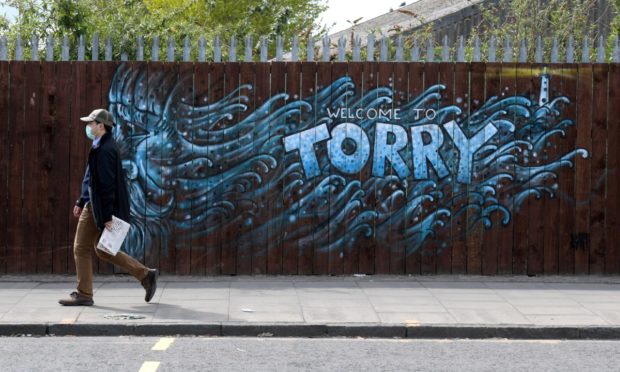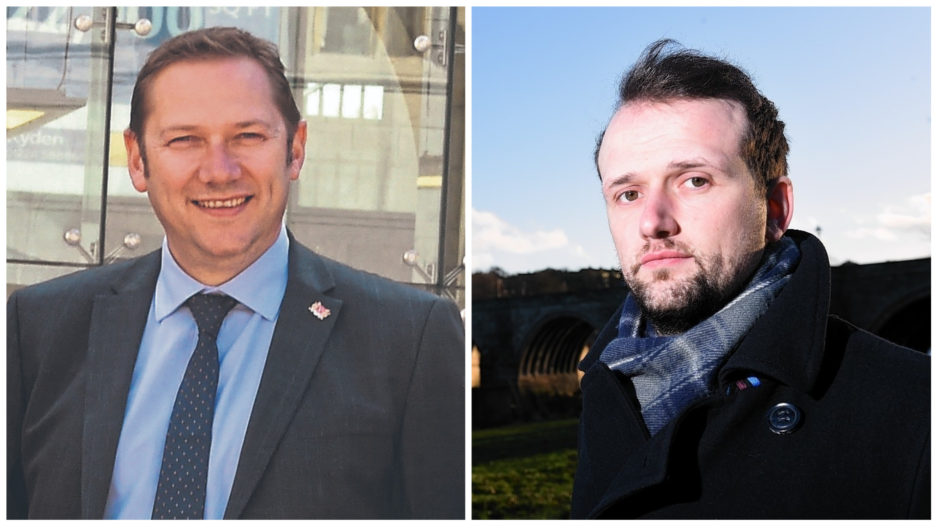One of the most deprived areas of Aberdeen is “on a knife-edge” due to the economic impact of Covid-19 as new figures show one in five working aged people in Torry are surviving on Universal Credit.
An economic analysis by Aberdeen City Council, seen by the Press and Journal, shows the number of people claiming unemployment related benefit has more than doubled in Torry since March and has risen sharply as numbers across the city have also increased.
The number of people claiming benefits soared from 620 in March to 1,250 in September 2020, while the number of working-age people claiming Universal Credit prior to the introduction of Covid-19 lockdown measures shot up during the period from 816 to 1,477 – a surge of 81% since March.
The claimant count includes those claiming Jobseekers Allowance and those claiming Universal Credit.
Local leaders said the area was under severe pressure, but its resilient residents would pull together to support each other in the hardest of times.
They did, however, express shock at the nature of the figures, which prove the community’s plight is even more serious than they had appreciated.
As numbers have continued to increase across Scotland, claimant count for unemployment related benefit in Aberdeen was 4,165 in March, yet had more than doubled to 9,415 by September.
Of all people in the Granite City claiming Universal Credit, the figure in March was 7,966, which had also more than doubled to 17,281 by September 2020.
Reverend Ian Lloyd, of the Torry United Free Church of Scotland, said: “I’m absolutely shocked.
“I knew it would be difficult but I hadn’t actually grasped that it would be quite as dramatic a rise.
“There has been a history of promises that have not come to fruition – people have been let down here by the government and local government in the past – so I think there is a resilience that may not be in other communities that have not had to cope with that level of deprivation before.
“The strongest community issue here is that people have felt they have to deal with these things themselves.”
Renee Slater, a Torry community activist, said: “Torry was already the eighth poorest area of Scotland.
“One thing you can be sure about is that people will try and get themselves through this, but it won’t be easy.
“People on low wages and benefits do try to support each other as much as they can because they know what the issue is like – you don’t see that kind of thing in richer areas.”
Lisa Duthie, chief executive of Community Food Initiatives North East (Cfine), added: “These figures show that areas of deprivation and people that are already termed the most disadvantaged have suffered the most through this Covid-19 pandemic.
“You really have to feel for people who’ve been placed in this situation through no fault of their own.”
Jobs in Aberdeen have been in sharp decline since March as the city has experienced the double-whammy of an oil and gas downturn and a number of strict coronavirus restrictions.
New figures released on Monday showed that a collapse in local service jobs in the hospitality, retail and arts and leisure sectors has resulted in a steep 75% fall in employment vacancies in Aberdeen – the worst in the UK.
Douglas Lumsden, co-leader of Aberdeen City Council and convenor of city growth and resources, said additional funding is needed to support the city.
He said: “In Aberdeen we have been hit by multiple things – we’ve had the reduction in the oil price – and obviously that doesn’t help when you’re dealing with a pandemic.
“All the data I’ve seen is pretty negative for the city, but that’s why we’ve been calling for extra investment to try to do as much as possible to protect as many jobs as we can.
“It’s startling when you look at the redundancy figures.
“We are miles about anywhere else – three times higher than the second placed local authority.”
Mr Lumsden added: “There are a lot of things in the north-east that puts us on a knife-edge and we need as much government support as possible.”
Stephen Flynn, MP for Aberdeen South, said of the rise in Torry Universal Credit figures: “The fact the number of people claiming unemployment related benefit has doubled in six months is deeply worrying and highlights, once again, the enormous toll of covid-19 and the oil price crash.
“It also reinforces why the UK Government must reverse their scandalous decision to end the furlough scheme and replace it with a shoddy alternative that will place additional costs on to already struggling businesses.
“We’ve told the Tories time and again that there must be an economic response to match public health measures and despite being in the midst of a second wave of Covid-19 they continue to cut support and refuse to devolve borrowing powers to Holyrood so that we can take action where they won’t.”
A Scottish Government spokesman said: “The Scottish Government has already taken exceptional measures in every area of government to deal with the challenges of Covid-19, and that is particularly clear in the support for local services.
“We are very aware of the financial impact the coronavirus crisis has had on many families, and are particularly concerned that the ending of the furlough scheme could push more people onto Universal Credit.
“That is why we have continually called on the UK Government, which has responsibility for all income-related benefits, to reverse welfare cuts which are hitting harder than ever, and to make fundamental alterations to Universal Credit.”

